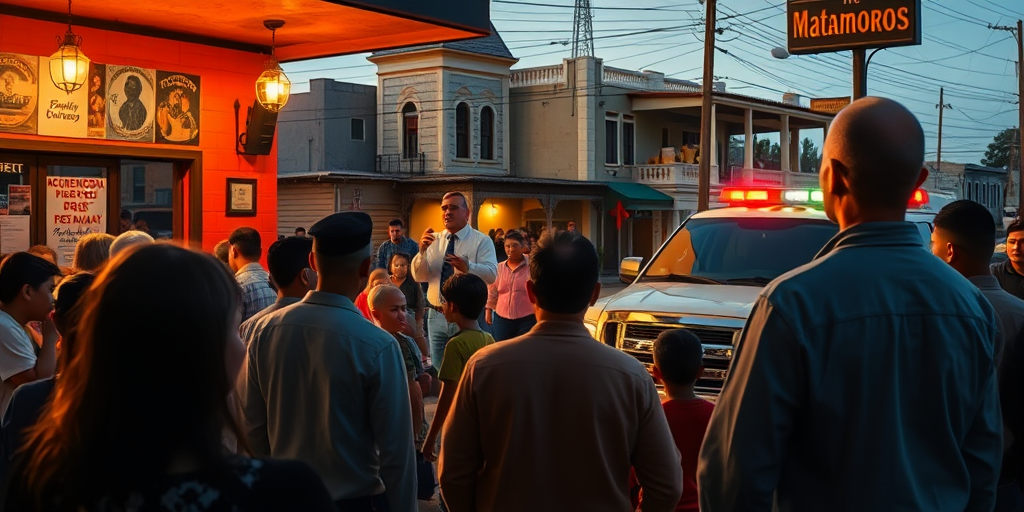**Body of Missing Brownsville Sailor Found in Virginia: What It Means for the Rio Grande Valley**
In a tragic turn of events, the body of 25-year-old Angelina Resendiz, a sailor hailing from Brownsville, Texas, has been discovered in Norfolk, Virginia, following an intensive search. This development has sent shockwaves through the Rio Grande Valley (RGV), where Angelina’s family and friends had been anxiously seeking her safe return. The case, now drawing national attention, highlights significant concerns regarding military communication protocols and accountability, issues the Resendiz family is urging state and national leaders to address.
**Discovery and Investigation**
The Naval Criminal Investigative Service announced the discovery of Angelina’s body in a wooded area just miles from her stationed barracks on Monday evening. A suspect is currently in custody, detained on suspicion of involvement in her death. Pending charges under the Uniform Code of Military Justice raise significant stakes in what is evolving into a high-profile case.
As articulated by the Navy, “NCIS remains committed to uncovering the facts surrounding the tragic death of Seaman Resendiz to ensure accountability and justice.” While the investigation is still in preliminary stages, the loss of Angelina has become a focal point for systemic military communication failures, echoing further across national precincts.
**Family’s Call to Action**
Angered by how the situation unfolded, Angelina’s family is seeking justice and answers. Her mother, Esmeralda Castle, expressed profound disappointment with how notifications were handled. She described the heartbreaking moment of learning about her daughter’s disappearance through informal channels, not official ones—a failure she believes put Angelina’s life at unnecessary risk.
“We call on the United States government, our senators, and President Donald Trump to address the systematic communication failures within military structures that allowed Angelina to vanish without immediate action or notification,” Castle stated. This call to action includes reaching out to local representatives and advocacy for reforms ensuring no other family endures such anguish.
Congressman Vicente Gonzalez, representing the RGV region, affirmed his commitment to supporting the family. “My heartfelt condolences go out to the family and loved ones of Angelina Petra Resendiz. This tragedy underscores the urgent need for systemic reforms to protect our service members and ensure their families receive timely information,” he declared.
**Local Impact on the Rio Grande Valley**
The implications of this case ripple throughout the RGV, a community with deep military roots and significant pride in its local heroes. Valley residents, supportive yet dismayed, have rallied around the family, echoing calls for reform and justice. Their collective voice underscores a desire to see the integrity of military operations upheld and a clear pathway to avoid future tragedies.
Jose Martinez, a retired Naval officer living in South Texas, highlighted what many in the community feel: “We must demand better. Our sons and daughters serve with honor and deserve the assurance that the systems designed to protect them—and us—are reliable and responsive.”
**A Broader Context of Systemic Issues**
The Resendiz tragedy sheds light not just on communication breakdowns, but on a broader narrative concerning military oversight. Recent critiques indicate systemic inefficiencies and a need for proactive measures to secure the well-being of service members. Angelina’s case is not isolated, but part of a larger pattern demanding attention.
RGV news channels have a role in bridging the gap, urging Valley residents to engage with the issue and pushing for necessary investigations and reforms. Channel 5, for example, is taking steps to ensure local families are informed and can reach out for support, offering resources for affected families needing guidance or advocacy.
**Conclusion: The Path Ahead**
Angelina’s untimely death is a solemn reminder of the real and urgent issues that lie behind military service’s noble facade. For RGV residents, it serves as a call to unite in seeking transparency, accountability, and reform.
Looking forward, the path is clear—continue to support the family of Angelina Resendiz while demanding an overhaul in military policies that respect the dignity and safety of all service members. The RGV community remains hopeful that out of this tragedy, meaningful changes can be fostered, ensuring the protection and well-being of all who serve.
For those seeking immediate responses or wishing to support the Resendiz family’s cause, local community centers, like the Heart of the Valley initiative, offer avenues for engagement. They provide structured recommendations for contacting state representatives and participating in awareness campaigns dedicated to military reform.
With a community’s support, such tragedies may one day become stories of the past, paving the way for a more secure and accountable future for all.







